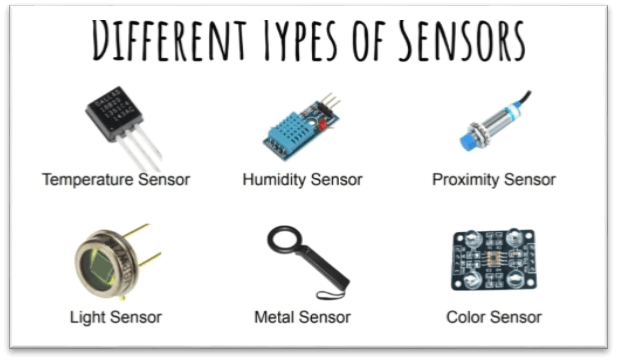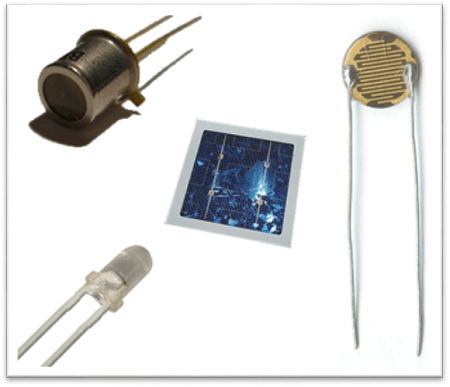Advantages and Disadvantages of Sensors
What are Sensors?
A sensor is a tool that detects and measures bodily belongings and records, indicates, or in any other case, responds to them. Sensors are used in lots of normal items, together with touchscreens, cameras, or even in a few toys. Sensors are a vital part of current technology, together with smartphones, laptops, and digital gadgets. They can also be utilized in clinical and business equipment and environmental tracking structures. Some not unusual place styles of sensors encompass temperature sensors, stress sensors, movement sensors, and chemical sensors.
Types of Sensors:
There are many one-of-a-kind styles of sensors, every designed to degree selected bodily belonging. Some not-unusual place styles of sensors encompass:
- Temperature sensors: These sensors degree temperature and are utilized in various programs, such as thermostats, ovens, and climate stations.
- Pressure sensors: These sensors degree stress ever realized in several programs, such as tire stress monitors, altimeters, and air stress gauges.
- Motion sensors: These sensors locate motion and are utilized in protection structures, computerized light structures, and online game controllers.
- Chemical sensors: These sensors locate the presence or awareness of precise chemical substances and are utilized in air exceptional monitors, breath analyzers, and meal protection monitors.
- Light sensors: These sensors locate mild and are utilized in cameras, automated door openers, and streetlights.
- Sound sensors: These sensors locate sound and are utilized in noise-canceling headphones.
- Proximity sensors: These sensors locate the presence of close by items and are utilized in smartphones, laptops, and robotics.
- Magnetic sensors: These sensors locate a magnetic area and are utilized in compass apps and door sensors.
This is only a small choice of the various styles of sensors that might be available.
Sensors Now & in the Future:
Sensors have become a vital part of much current technology and feature a variety of programs in numerous fields. In destiny, it's possible that sensors will keep playing a key function within the improvement of recent technology and can be utilized in a fair extra variety of programs. Some viable regions wherein sensors can be used inside the destiny encompass:

- The Internet of Things (IoT): Sensors can attach various gadgets and items to the internet, permitting them to accumulate and proportion records.
- Autonomous structures: Sensors can allow self-riding cars, drones, and different self-sustaining structures to navigate and make decisions.
- Environmental tracking: Sensors can be used to screen and song environmental situations, together with air and water exceptional, climate patterns, and natural world populations.
- Medical technology: Sensors can screen and song fitness situations with coronary heart rate, blood stress, and sleep patterns and supply-centered therapies.
- Agriculture: Sensors can optimize crop manufacturing and soil management, for instance, by detecting pests and illnesses or tracking soil moisture ranges.
- Manufacturing: Sensors can be used to optimize production methods and locate merchandise defects.
- Energy management: Sensors can be used to optimize strength usage, for instance, by adjusting lights and heating ranges primarily based on occupancy or tracking strength intake in buildings.
Overall, the usage of sensors can keep extending and evolving within the coming years, permitting an extensive variety of recent technology and programs.
Advantages of Sensors:
- Sensors can automate responsibilities and methods, growing performance and accuracy.
- Sensors may be used to screen situations and collect records in real-time, taking into account brief and knowledgeable choice-making.
- Sensors may be used to screen and manipulate structures remotely, permitting faraway operation and maintenance.
- Sensors may be used to enhance protection by detecting fuel line leaks or the presence of human beings or items in dangerous regions.
- Sensors may be used to preserve resources, adjust the construction temperature based totally on occupancy or turn off lighting while a room isn't in use.
- Sensors may be used to enhance the exceptional of merchandise and services, for instance, by detecting defects in production methods or tracking the exceptional of the air or water.
- Sensors may decorate the capability of merchandise and gadgets by including contact or gesture controls on smartphones or by permitting self-riding cars.

Disadvantages of Sensors:
- Sensors may be expensive, in particular, if they're excessive-precision or specialized.
- Sensors may be fragile and can want to be covered from bodily harm or severe temperatures.
- Sensors may be tormented by interference from different sources, electromagnetic fields, or sensors.
- Sensors also require ordinary calibration to make certain accuracy.
- Sensors might also have restrained ranges, which means they'll no longer be capable of degree very excessive or very low values.
- Sensors might also have restrained resolution, which means they'll no longer be capable of locating small adjustments within the bodily belongings they're measuring.
- Sensors may not be appropriate for all environments, as a few sensors may not be capable of facing up to excessive ranges of moisture or dust.
- Sensors also enhance privacy issues if they're used to collect non-public records, together with area or biometric information.
The Conclusion:
Sensors are devices that are used to detect and measure various physical and environmental conditions. They are widely used in many different industries and applications, such as in automotive, industrial, medical, and consumer electronics. Sensors have many advantages, including their ability to provide real-time data, their precision and accuracy, and their ability to work in harsh environments. However, they also have some disadvantages, including cost, susceptibility to interference and damage, and limited lifespan.
One of the main advantages of sensors is their ability to provide real-time data. This enables them to be used in a wide range of applications, such as monitoring the condition of industrial equipment or tracking the performance of vehicles. Sensors are also highly precise and accurate, which makes them ideal for use in applications where precise measurements are required, such as in medical devices or scientific research. Additionally, sensors can work in harsh environments, such as extreme temperatures, high pressures, and high levels of vibration, making them suitable for use in industrial and automotive applications.
However, there are also some disadvantages to using sensors. One of the main disadvantages is the cost of sensors. Sensors can be expensive, and in some cases, their cost can be prohibitive for certain applications. Additionally, sensors can be susceptible to interference and damage, which can affect their performance and accuracy. They also have a limited lifespan and require regular maintenance to ensure they continue functioning correctly.
In conclusion, sensors are powerful devices that have many advantages, such as providing real-time data, high precision, and working in harsh environments. However, they also have some disadvantages, such as high costs, susceptibility to interference and damage, and limited lifespan. It's important to weigh the advantages and disadvantages of sensors before deciding on their usage.
|


 For Videos Join Our Youtube Channel: Join Now
For Videos Join Our Youtube Channel: Join Now










